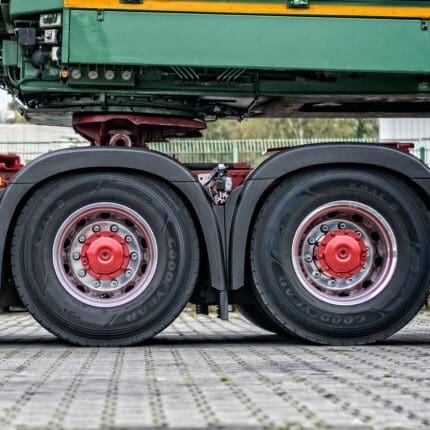- Shop All Documents + Bundles
- FORS V7.1 Document Bundle | Bronze (15 Policies)
- Transport Manager Compliance Pack (10 Policies)
- Transport Manager Compliance Pack (6 Policies)
- Health & Safety Policy Template
- Fuel, Emissions And Air Policy Template
- Operational Security Policy Template
- Serviceability And Roadworthiness Policy Template
- Road Traffic Collision Policy Template
- Counter Terrorism Policy Template
- Load Safety Policy Template
- Vehicle Routing And Scheduling Policy Template
- Driving Standards Policy Template
- Driving Hours Policy Template
- In Cab Technology Policy Template
- Passenger Safety Policy Template
- Complaints And Grievances Policy Template
- Drug And Alcohol Management Policy Template
- Hazard And Risk Identification Policy Template
- VOR (Vehicle Off Road) Policy Template
- Tyre + Wheel Policy Template
- Health & Eyesight Policy Template
- Transport Infringement Policy Template
- Walk Around Check (Defect Check) Tool Box Talk Template
- Transport Manager CV Template
- Social Media Policy Template
- Transport Manager Contract Template
- External Transport Manager Contract Template
- Driver Handbook
Transport UK > Transport Manager Shop > VOR (Vehicle Off Road) Policy Template

Tyre + Wheel Policy Template
£11.00 ex.VAT

In Cab Technology Policy Template
£11.00 ex.VAT
VOR (Vehicle Off Road) Policy Template
£11.00 ex.VAT
Ensure that vehicles that are required to be off the road will be identified in a timely fashion and that no vehicle is accidentally driven whilst under VOR status.
⧉ PREVIEW: View our Test Document here to sample the format.
| Brand |
Transport UK |
|---|---|
| Document Format |
PDF [Digital Download] |
| Legislation |
UK Law |
| Transport Manager |
Transport Manager CPC ,VOR (Vehicle Off Road) |
| Document Author |
Transport UK Industry Professionals |
| Technology |
Strictly No Artificial Intelligence (AI) Copywriting |
| How To Edit |
Microsoft Word |
| Product Type |
Digital Product [Downloadable] |
11
People watching this product now!
SKU:
TUK-VOR-01
Category: VOR (Vehicle Off Road) Policy
Tags: Transport Manager Compliance, Transport Manager CPC, Transport Manager Documents, Transport Manager Handbook, Transport Manager Resources
Description
Why do i need this document?
A VOR (Vehicle Off Road) Policy is an essential framework that sets forth the minimum standards required to effectively manage and maintain vehicles that are temporarily out of operation. This policy is crucial for organizations that possess a fleet of vehicles and need to ensure proper care and maintenance even when these vehicles are not actively on the road. Here are the reasons highlighting the significance of having a VOR Policy:
- Preventive Maintenance: The core objective of a VOR Policy is to prevent and mitigate potential issues that may arise when vehicles are off the road. It establishes protocols for regular inspections, servicing, and maintenance of idle vehicles to minimize the risk of operational disruptions upon return to service.
- Compliance and Standards: A robust VOR Policy must align with all relevant industry regulations, internal standards, and manufacturer guidelines. This alignment ensures that vehicles remain compliant with safety and operational requirements even when they are not actively in use.
- Optimal Resource Utilization: By having a well-structured VOR Policy, organizations can ensure efficient utilization of resources. This includes proper storage, protection from environmental factors, and safeguarding against unauthorized use during the off-road period.
- Timely Return to Service: A VOR Policy outlines procedures for quickly bringing vehicles back into operation once they are taken off the road. This includes efficient scheduling of maintenance tasks and systematic checks to verify roadworthiness before resuming active duty.
- Inventory Management: The policy should include guidelines for tracking and managing vehicles that are off the road. This ensures accurate records, facilitates planning, and prevents unnecessary downtime due to misplaced or overlooked vehicles.
- Documentation and Reporting: A comprehensive VOR Policy mandates the documentation of all maintenance and repair activities carried out during the off-road period. Proper record-keeping assists in evaluating the condition of vehicles and aids in making informed decisions regarding their readiness for service.
- Environmental Considerations: The policy can address environmentally responsible practices for off-road vehicles, such as proper disposal of waste fluids, recycling of parts, and adherence to eco-friendly maintenance procedures.
- Training and Skill Enhancement: The VOR Policy may include provisions for training technicians or personnel responsible for off-road vehicle care. This ensures that maintenance procedures are carried out proficiently and in line with best practices.
- Communication Protocols: Establishing clear communication channels within the organization regarding off-road vehicles is vital. The policy should outline how updates, alerts, and status reports on off-road vehicles are communicated among relevant stakeholders.
- Continuous Improvement: Like any effective policy, a VOR Policy should be subject to periodic review and refinement. This allows for adaptation to changing technologies, industry standards, and lessons learned from previous off-road experiences.
In summary, a well-structured VOR Policy is indispensable for organizations that manage fleets of vehicles. By adhering to the guidelines and procedures outlined in the policy, organizations can ensure the long-term health, safety, compliance, and operational readiness of their vehicles, even when they are temporarily off the road. This ultimately contributes to maintaining a streamlined and efficient fleet management process.
Reviews (0)
Only logged in customers who have purchased this product may leave a review.
How does it work?
We will deliver this digital document (PDF) instantly to you by email when you purchase it.
- Purchase
- Download
- Add your company logo/details
- Adjust/tailor to your requirements
- Be compliant
⧉ Want to try before you buy? View our Test Document here to sample the format in which our documents are made available to you.
Templates you can trust
Our templates are written by transport professionals with a combined 100 years experience in the industry, managing complex and large fleets.
Strictly NO artificial intelligence (AI) copywriting is used in our policies and documents.
You may also like…
Transport Manager Compliance Pack (6 Policies)
Driving Hours Policy, Driving Standards Policy, In Cab Technology Policy, Road Traffic Collision Policy, Tyre + Wheel Policy, VOR (Vehicle Off Road) Policy, Compliance Document Bundles
Rated 5.00 out of 5















Reviews
There are no reviews yet.